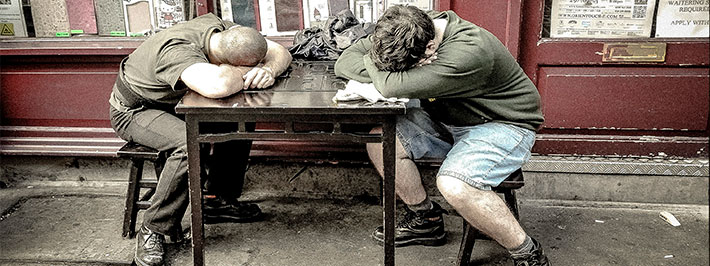
How to overcome fatigue after a Covid?
Fatigue is common after an infectious illness. In the case of Covid-19, it is sometimes intense and can last for several months. Some patients must undergo exercise rehabilitation sessions.
Fatigue persists very frequently after the acute phase of Covid-19. Logically it is found in patients who leave the hospital after having presented a severe form of the disease, but also in some people who have only suffered mild symptoms. "Six weeks after infection, half of the patients have not regained their full abilities," said Professor Pierre Tattevin, president of the French-speaking Society for Infectious Pathology.
Why is there post-Covid fatigue?
All infectious diseases can affect the body for several weeks; And this is especially true with Covid-19. "The disease puts great pressure on the immune system, which could explain why fatigue is so marked after infection, especially in young and initially healthy patients, whose immune system is very reactive. This fatigue does not surprise us in patients that have been ventilated and that come out of intensive care. It is more surprising in young people who have presented a non-serious form of Covid. We do not see such a situation after the flu, "observes the infectious diseases specialist.
Is this fatigue different?
The High Health Authority (HAS) delivered its recommendations on the management of Covid-longs in February 2021. In this practical document intended for physicians, it describes fatigue as "one of the most prevalent symptoms that can persist throughout the initial episode of Covid-19 or will reappear suddenly after an improvement phase. "
HAS encourages us not to neglect this seemingly banal symptom and to look for the cause as much as possible. "We should not put everything on the Covid-19 account," warns Professor Tattevin, inviting patients to speak with his doctor.
Exertional fatigue and persistent shortness of breath are common. They may indicate a breathing problem that has not been resolved or a heart defect.
But other factors can trigger, or aggravate, this feeling of exhaustion: unrefreshing sleep, stress, anxiety, even depression.
Why should we fight this fatigue?
At the consultation, patients tell their doctor that they "can't take it anymore." The risk, in this context, is to fall into a vicious circle. When we are exhausted, we sit or lie down, we limit our activities. However, the less you move, the more you will lose your muscles and your ability to breathe.
After a Covid it is undoubtedly necessary to rest; but without remaining inactive. On the contrary, it is important to regain good physical condition as soon as possible by strengthening muscles and increasing lung capacity. Another advantage is that by practicing physical activity we regain confidence in ourselves and the body secretes endorphins, anti-stress hormones, which help overcome anxiety related to the disease.
What physical activity after a Covid?
This physical activity must be progressive and adapted to the capacities of each individual, for example walking or cycling. You have to train at your own pace, without trying too hard.
For people who have special breathing difficulties, exercise rehabilitation sessions are necessary, supervised by a sports doctor or physical therapist. It is currently one of the rare Covid treatments validated by the High Health Authority for a long time. "These rehabilitation programs, which start in the hospital but can then continue at home, are offered to patients on demand, after having assessed their difficulties: mainly muscle fatigue or breathing difficulties," explains Professor Tattevin.
Post-covid fatigue: getting out of the brain fog
Many patients come out of the Covid test feeling "brain foggy." They complain of confusion, memory impairment, and lack of concentration. These different symptoms are often exacerbated by stress and anxiety caused by the disease.
To overcome these difficulties, some people need genuine psychological support. But most will manage by adhering to some simple hygiene rules of life: avoid stimulants like tea or coffee, ban screens after 6pm to fall asleep more easily, sleep in a cool room, relax. Or even meditate if possible.
Most patients who feel exhausted after Covid will recover within a few weeks. For others, it will take longer. The evolution is usually sawtooth, with ups and downs, at a different rate depending on the individual. As such, Professor Tattevin wishes to convey a message of optimism: "It's long, but it always ends up getting better. Don't be discouraged!"